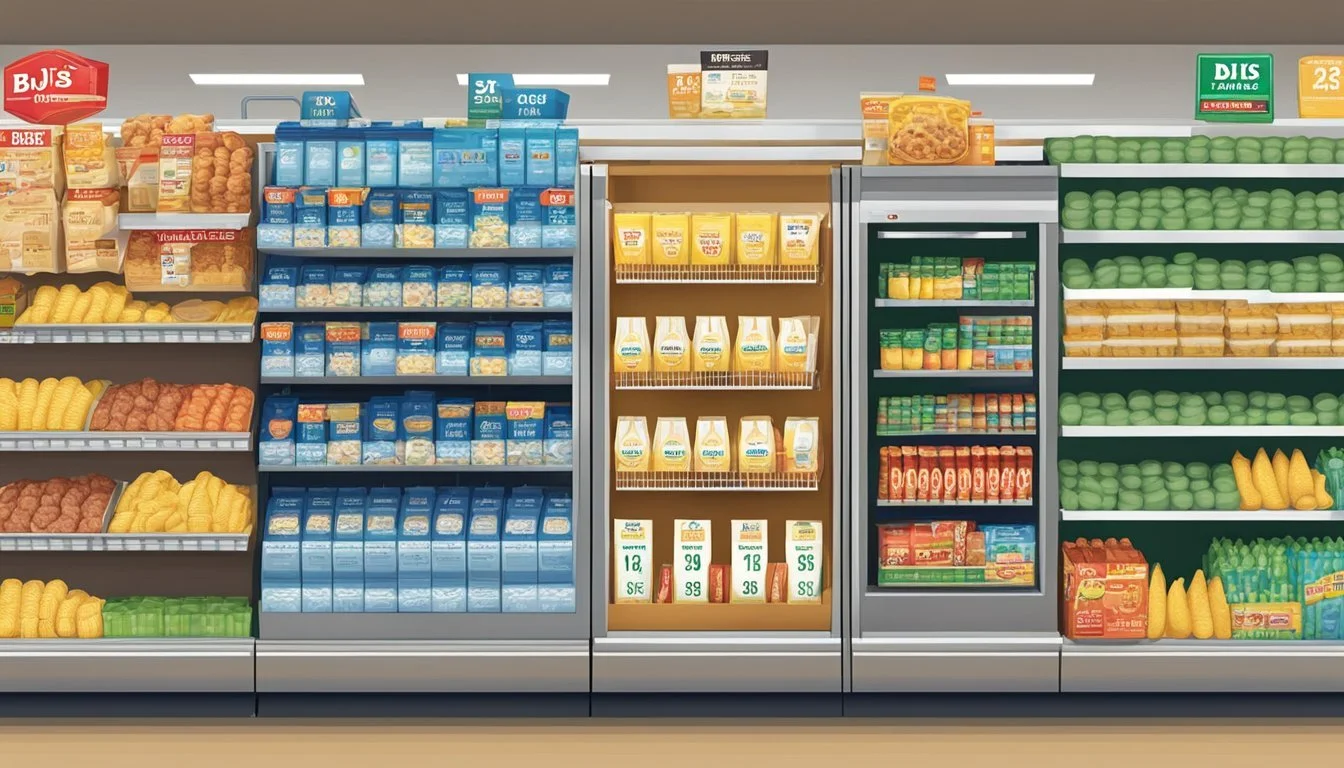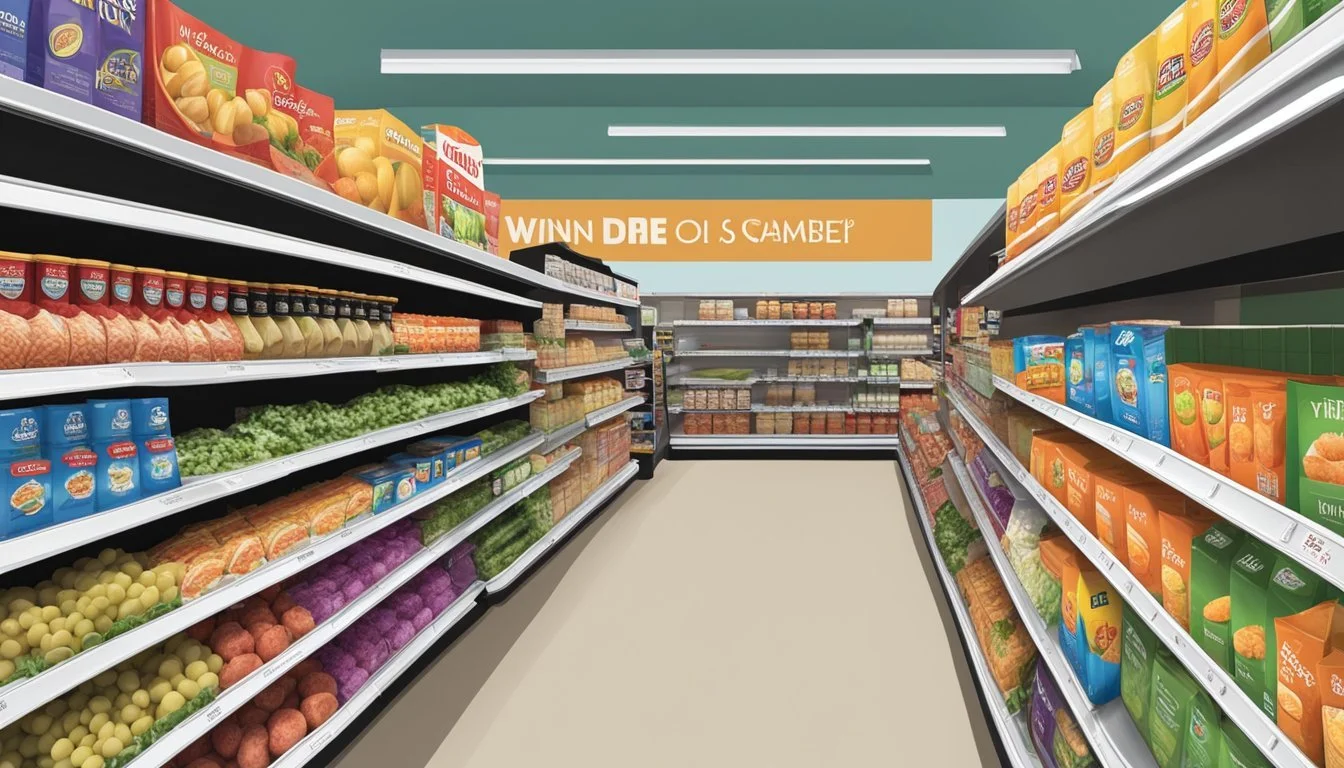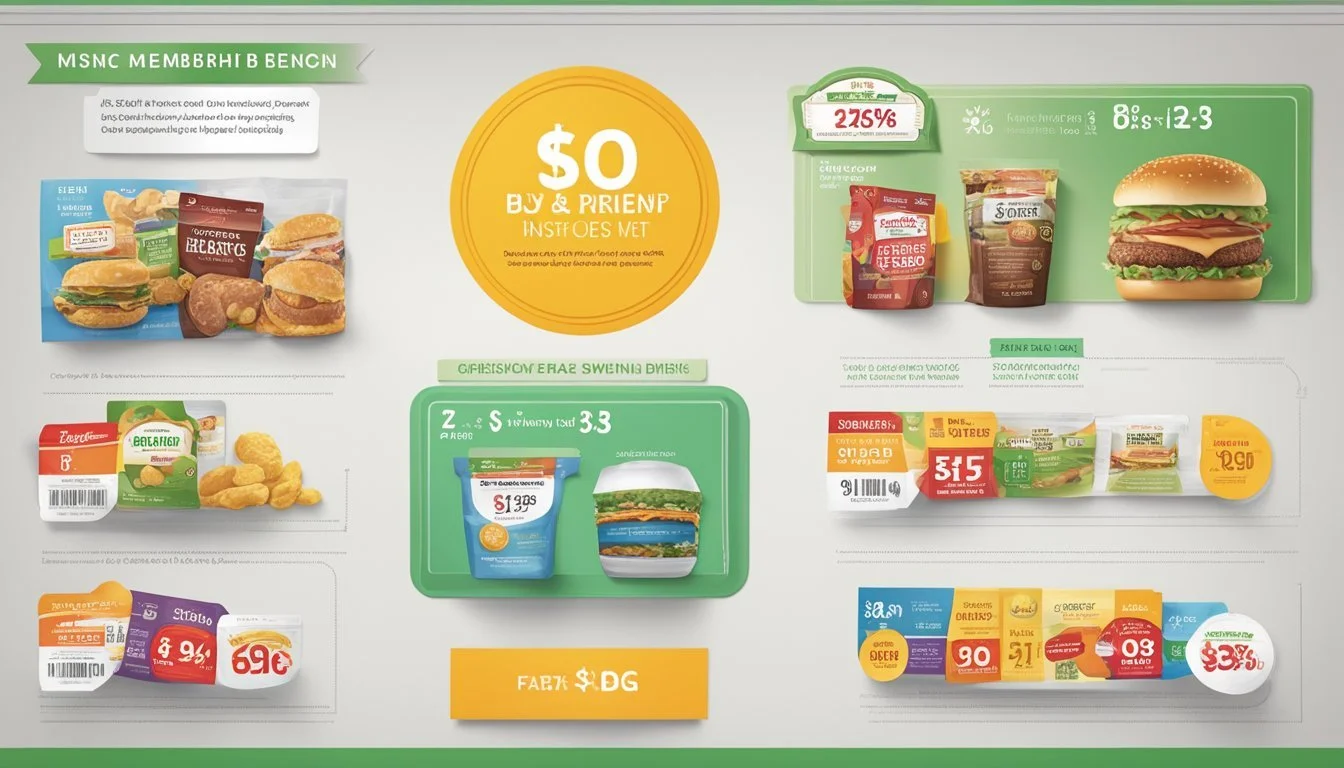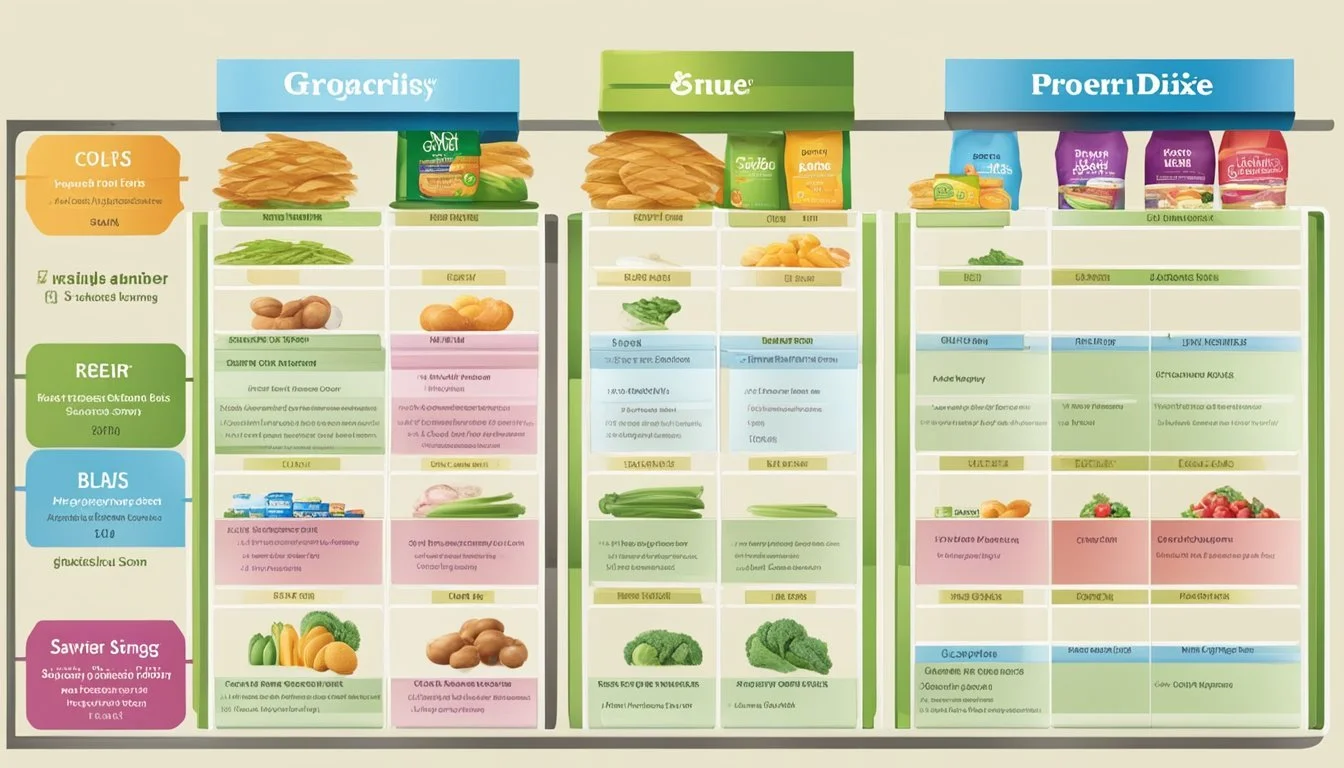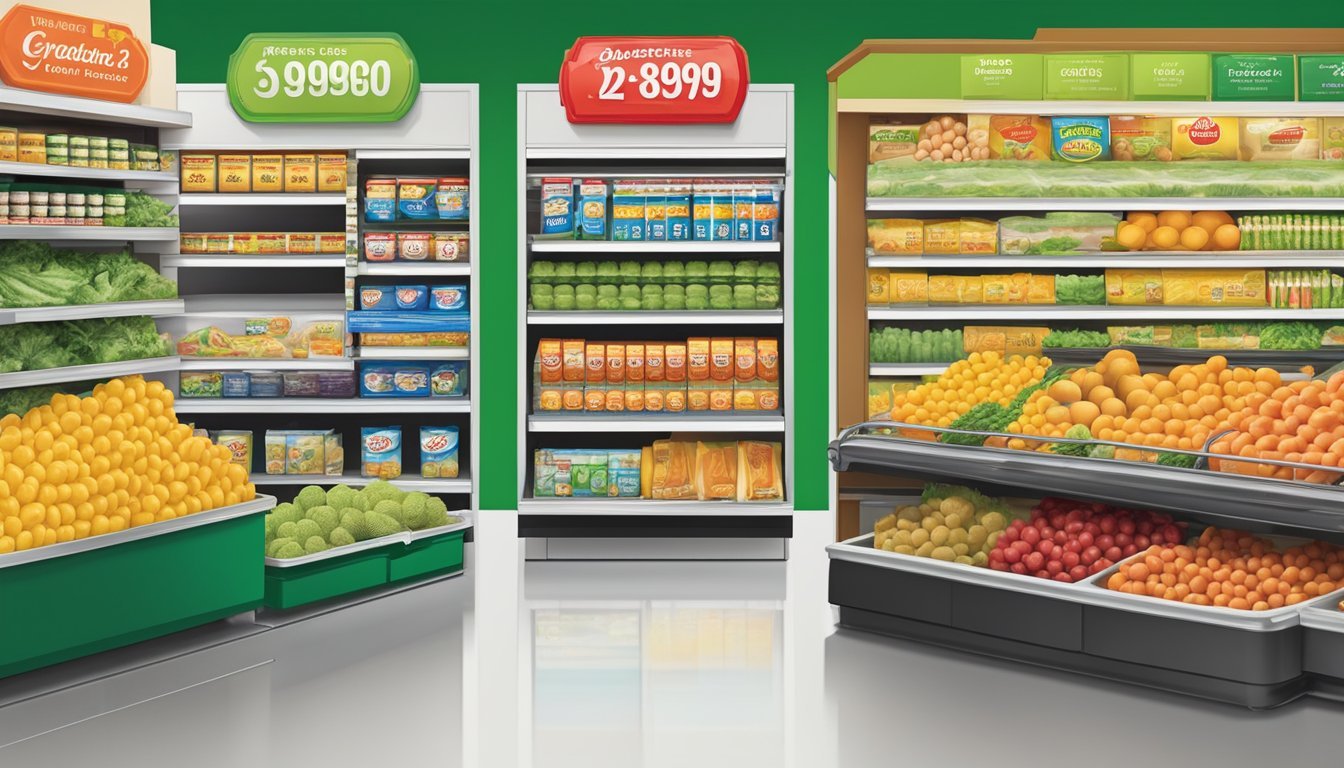Is Winn-Dixie Cheaper Than BJ's?
Comparing Grocery Value and Savings
Part of Our Grocery Store Guide with Details on Winn-Dixie Prices and BJ's Wholesale Club Prices
When it comes to grocery shopping, budget-conscious consumers are always on the lookout for the best deals. With a variety of chains to choose from, prices can vary significantly, leaving shoppers to wonder where they might save the most money on their purchases. Winn-Dixie and BJ's Wholesale Club are two retailers that offer different shopping experiences and pricing models. Winn-Dixie, primarily operating in the southeastern United States, markets itself to value-conscious customers by offering competitive pricing within the grocery sector.
BJ's Wholesale Club, on the other hand, operates on a membership basis and is known for selling products in bulk. This can lead to savings for customers who are able to buy larger quantities of items they use frequently. Despite these differences, a direct comparison of the two on pricing is not straightforward. BJ's offers bulk pricing, which often means a lower unit price, but this requires a larger upfront cost and the capacity to store bulk items. Meanwhile, Winn-Dixie's pricing strategy is built on weekly specials and promotions, which can mean significant savings on select items without the need for buying in bulk.
Choosing between these two retailers may not solely come down to the price per item, but also factors like membership fees, buying habits, and the convenience of store locations. It is important for consumers to consider their shopping preferences and needs when determining which retailer provides the better value for their specific circumstances.
Pricing Comparison Overview
When comparing grocery prices between Winn-Dixie, a renowned supermarket chain, and BJ's Wholesale Club, a members-only warehouse, one must consider several factors influencing consumer costs. Shoppers at BJ's can often take advantage of bulk purchasing, which typically leads to savings over time, but may require an upfront membership fee and larger quantities purchased.
In the domain of individual item pricing, studies have shown that warehouse clubs like BJ's Wholesale Club often present lower unit prices compared to traditional grocery stores such as Winn-Dixie. On the other hand, Winn-Dixie offers weekly deals and promotional discounts that can impact the price per item, making it competitive in certain scenarios.
Comparative Analysis:
Grocery Item Prices: Warehouse clubs often lead in base price, with potential savings enhanced when buying in bulk.
Discounts and Promotions: Winn-Dixie may offer more frequent sales on individual items, with potential savings for consumers not interested in bulk purchases.
Membership Costs: BJ's requires a membership fee, which should be factored into overall savings calculations for consumers.
Competing chains like Walmart, Costco, and Aldi are known for low pricing strategies, capturing the attention of cost-sensitive shoppers. Publix and Target, while not always the least expensive, have other attributes like customer service or product selection that contribute to their appeal.
Grocery Chain Known For BJ’s Bulk savings, membership model Winn-Dixie Promotional discounts Walmart Low overall prices Costco Bulk purchases, low unit prices Aldi Low cost, private label goods Publix Customer service, product variety Target Competitive pricing, convenience
Consumers' decisions are influenced by various aspects including price, convenience, product selection, and shopping preferences. Therefore, pricing is one of the critical elements in the broader context of grocery shopping value.
Understanding Grocery Markets
In a complex landscape of grocery retail, understanding the market dynamics and consumer behaviors is critical for households that are aiming to optimize their grocery shopping expenses.
Market Players
The grocery market is a competitive space with a range of market players including small independent grocery shops, large supermarkets, and warehouse club stores like BJ's. Each player has a distinct positioning, with supermarkets such as Winn-Dixie offering a traditional full-service grocery experience, and warehouse clubs providing bulk purchasing options at a membership cost. Consumer reports often break down the pros and cons of each, emphasizing variables like product selection, price, and convenience.
Consumer Shopping Patterns
Consumer shopping patterns have evolved substantially, with decisions influenced by factors such as price, quality, and shopping experience. Grocery shopping has become a nuanced activity where households often split their purchases across multiple outlets to take advantage of deals and specific product offerings. Household budget constraints have also led to refined strategies in grocery procurement, such as bulk buying at warehouse clubs or seeking supermarkets that offer the best balance of value and quality.
Comparing Product Variety and Quality
When assessing the product variety and quality at Winn-Dixie versus BJ's, consumers will notice differences in name brand presence, store brand offerings, as well as the selection of organic and fresh produce provided by each retailer.
Name Brand Products
Winn-Dixie and BJ's both offer a wide array of name brand products across various categories. Winn-Dixie, a conventional grocery store, ensures a consistent supply of popular name brands in dairy, meat, and bakery items. BJ's, on the other hand, is a warehouse club that also offers name brands, but focuses on bulk packaging, which can be more convenient for shoppers looking to buy in larger quantities.
Store Brand Goods
Winn-Dixie’s store brand, SE Grocers, competes closely with national brands in taste and quality, often at a lower price point. Shoppers frequently find that everyday items like white sandwich bread and raw chicken offer good value. BJ's store brand, Berkley Jensen, and Wellsley Farms are marketed with an emphasis on quality at competitive prices, with products spanning from organic produce to cheese and fruit.
Organic and Fresh Produce
The selection of organic and fresh produce at BJ's tends to be expansive due to their warehouse format, which can offer a diverse range of bulk organic items. Winn-Dixie, while it may not match the sheer volume of BJ's, takes care in providing quality organic produce choices, ensuring customers have access to fresh fruit and vegetables tailored to a traditional grocery shopping experience.
Membership and Rewards Benefits
Comparing the membership and rewards benefits of Winn-Dixie and BJ's Wholesale Club reveals distinct structures tailored to different shopping preferences. Both retailers offer programs designed to enhance the shopping experience through savings and exclusive benefits.
Membership Programs
BJ's Wholesale Club operates on a membership model where shoppers can choose from two main types of annual memberships. The Basic Membership is priced at $55, while a Plus Membership escalates to $110 annually, with added perks such as 2% cash back on most purchases.
Winn-Dixie, in contrast, does not require a membership fee, making it an accessible option for consumers without the need for any upfront annual cost. This open policy allows shoppers to take advantage of store offerings without the barrier of a membership fee.
Rewards and Loyalty Programs
Winn-Dixie's rewards program allows customers to earn points on qualifying purchases, which can be used for discounts on future shopping trips. They can use their phone number or a rewards barcode via the Winn-Dixie mobile app at checkout. Special in-app deals and purchasing select gift cards can result in additional points.
BJ's, on the other hand, integrates member discounts into its membership tiers. Shoppers with a basic membership can save money, while Plus members enjoy both savings and the aforementioned 2% cash back on most purchases. Special discounts may be available for new BJ's members, making the initial cost of membership lower.
Both BJ's and Winn-Dixie's loyalty programs are strategically designed to incentivize customer loyalty, offering tailored benefits that cater to regular shoppers and those who seek added value from their shopping experiences.
Assessing Bulk and Individual Purchases
When comparing Winn-Dixie and BJ's, shoppers often find distinct price differences based on whether they're buying in bulk or purchasing individual items. BJ's, with its bulk-buying model, typically offers value and savings on larger quantities, while Winn-Dixie tends to cater to those seeking budget-friendly prices without the need for bulk purchases.
Bulk Buying Advantages
At BJ's, customers purchasing in bulk can experience considerable savings, particularly on non-perishable and household items. For example, buying toilet paper or cleaning supplies in larger quantities directly translates into a lower cost per unit. This bulk value proposition is especially beneficial for large families or those stocking up for extended periods.
Specific Bulk Products from BJ's:
Toilet Paper: $0.50 per roll (in a 30-roll pack)
Olive Oil: $0.25 per ounce (in a 3-liter container)
Individual Item Purchase Costs
Winn-Dixie, on the other hand, prices its items individually, appealing to shoppers who either do not have the storage space for bulk items or who prefer to buy products as needed. This can lead to greater affordability for day-to-day purchases.
Specific Individual Items from Winn-Dixie:
Loaf of Bread: $2.19
Gallon of Milk: $3.09
Shoppers should consider their storage capabilities, consumption rates, and budget constraints when deciding whether bulk or individual item purchases are most cost-effective for their needs.
Location and Accessibility
When comparing Winn-Dixie and BJ’s Wholesale in terms of location and accessibility, it is important to consider both store proximity and the availability of in-store and online shopping options.
Store Proximity
Winn-Dixie typically operates in the southeastern United States, providing neighborhoods with convenient grocery shopping options. Its stores are plentiful in certain regions, making it easy for customers to visit without traveling long distances. On the other hand, BJ’s Wholesale, as a club store, has fewer locations which may require more travel time but can be worth the trip for the bulk savings.
Online and In-Store Availability
Both Winn-Dixie and BJ’s Wholesale offer online shopping experiences. Winn-Dixie provides its customers with the ease of online shopping without membership fees, ensuring that their services are widely accessible. BJ’s Wholesale also makes online shopping available. However, it requires an annual membership, which comes at a cost—$55 for Basic Membership or $110 for Plus Membership, potentially limiting its accessibility to those willing to pay for these services.
Promotions and Sales Strategies
When comparing promotional tactics and sales strategies between Winn-Dixie and BJ's Wholesale Club, both entities employ methods that aim to retain customers and encourage spending, yet their approaches differ fundamentally due to their core business models.
Winn-Dixie utilizes a wide-ranging promotional strategy to remain competitive. They frequently engage in cutting prices and have invested in renovating storefronts to attract customers. The emphasis on everyday low prices is part of a comprehensive strategy to offer value without the need for a membership fee. Additionally, they plan to become more promotional to drive sales and increase market share, a pivot from past practices where similar approaches had been less successful.
On the other hand, BJ's Wholesale Club structures its promotion around a membership model. Membership fees range from an annual cost of:
Basic Membership: $55
Plus Membership: $110, with added benefits such as 2% cashback on purchases.
Periodically, BJ's offers membership discounts to new members, further incentivizing sign-ups. The tiered membership system correlates with exclusive savings, where the greater investment in the Plus Membership capitalizes on customer loyalty through cashback opportunities and potential for greater long-term savings.
By not having an upfront membership fee, Winn-Dixie positions itself as an accessible choice for the shopper not interested in paying a premium for bulk savings. Conversely, BJ's appeals to a demographic seeking to maximize their savings by paying upfront but with a promise of exclusive deals and eventual reimbursements through cashback programs.
Store Brands vs. National Brands
This section examines the quality, price, and consumer preferences concerning store brands and national brands offered by grocery chains such as Winn-Dixie.
Quality and Price
Store brands, including those by Winn-Dixie, have established their presence as cost-effective alternatives to national brands. Store brands like SE Grocers from Winn-Dixie strive to match the quality of national brands while providing significant savings — often cited as being up to 20% cheaper. The perception is these products offer similar quality but leverage the cost advantages of not requiring extensive marketing.
Consumer Preference
Consumer preference can be influenced by a mix of factors, including perceived quality and affordability of products. Store brands have garnered a consumer base that prioritizes savings without a substantial compromise on quality. While some consumers remain loyal to national brands due to familiarity and perceived reliability, others are more flexible, choosing store brands when shopping at retailers like Winn-Dixie to optimize their budgets.
Price Comparison on Everyday Items
When comparing prices on everyday items, consumers typically look for the best deals on essentials such as dairy, bakery goods, meats, and household supplies. The following analysis examines the costs of these goods at Winn-Dixie and BJ's, providing insight into which retailer offers more competitive pricing on common purchases.
Daily Essentials Pricing
For basic household items, pricing can significantly impact a family's budget. Here's a sample price comparison for staple goods:
Item Winn-Dixie Price BJ's Price Butter (1 lb) $3.49 $2.99 Bread (loaf) $2.19 $1.99 Milk (gallon) $3.09 $2.79 Eggs (dozen) $1.89 $1.69 Peanut Butter $2.49 $2.29 Coffee (12 oz) $4.99 $4.49 Toilet Paper $4.99 $4.49 for bulk
While individual prices may vary depending on location and current promotions, this table gives a snapshot comparison that can inform shoppers of the potential savings BJ's may offer over Winn-Dixie for these daily essentials.
Fresh Food and Grocery
Fresh food and groceries are also a cornerstone of weekly shopping, and consumers might find differing price points for these items:
Bananas: Winn-Dixie tends to price bananas competitively, often using them as a loss leader, while BJ's sells bananas in larger quantities, which may offer better unit pricing.
Pasta: Shoppers could find regular discounts on pasta at Winn-Dixie, but BJ's bulk options might provide more savings in the long run.
Chicken Breast: Generally, BJ's offers chicken breast at a lower cost due to bulk packaging, while Winn-Dixie may have smaller packages at slightly higher prices.
Laundry Detergent: BJ's typically has larger sizes with lower price per unit, making it a go-to for bulk household purchases.
Paper Towels: Similar to toilet paper, Winn-Dixie offers competitive pricing on paper towels, but BJ's bulk options may lead to overall cost savings for the consumer.
The prices of fresh foods and groceries fluctuate based on market conditions, promotions, and seasonality. However, BJ's model of selling in larger quantities often leads to lower prices, which can be advantageous for customers looking to stock up on these items.
Additional Costs and Savings
When shopping for groceries and household items, consumers often weigh the balance between upfront costs and long-term savings. Understanding the nuances of membership fees and the discounts available on non-food items can guide shoppers in making informed decisions.
Membership Fees
BJ's Wholesale Club offers two tiers of membership: the Basic Membership at an annual cost of $55, and the Plus Membership priced at $110 annually. These membership fees grant customers access to BJ's discounted prices across a wide range of products, from groceries to electronics.
In contrast, Winn-Dixie does not require customers to pay a membership fee. Shoppers have immediate access to the store's product selection and savings opportunities without any additional upfront costs.
Discounts on Non-Food Items
Shoppers value savings on non-food items such as paper towels, diapers, wipes, and other household essentials. At BJ's Wholesale Club, members can often find bulk quantities of these items at reduced prices, which can lead to significant savings over time. Additionally, BJ's sometimes offers savings on services like propane refills, further stretching the value of their membership.
Winn-Dixie focuses on providing competitive prices on a diverse range of products, including fresh meat and common household items. While they may not offer the bulk purchasing options found at warehouse clubs, their frequent sales and promotions can provide customers with substantial savings on a day-to-day basis without the need for a paid membership.
Consumer Reports and Expert Rankings
In evaluating the cost-effectiveness of grocery shopping at Winn-Dixie compared to BJ's Wholesale Club, it is essential to consult consumer reports and expert rankings that assess grocery pricing strategies and store comparisons.
Reports on Grocery Pricing
Consumer reports have consistently shown that grocery pricing is a decisive factor for shoppers. Winn-Dixie does not require a membership fee, making it readily accessible and potentially more cost-effective for shoppers who do not wish to pay BJ’s Wholesale Club's annual Basic Membership of $55 or the higher-tier Plus Membership priced at $110.
Comparative Rankings of Stores
Expert rankings often take into account not only the prices but also the value and customer satisfaction. While BJ’s Wholesale Club might offer bulk pricing advantages, Winn-Dixie is typically highlighted for its lower prices on staples and everyday items. Experts also note that Winn-Dixie’s store brand, SE Grocers, is often comparable in taste and quality to national brands but is usually around 20% cheaper, further strengthening its position in comparative rankings of grocery stores.
Store Policies and Customer Service
Winn-Dixie and BJ's Wholesale offer distinct customer service experiences and store policies that reflect their different retail models.
Winn-Dixie operates without a membership fee, allowing customers easy access to their services and products. Their return policies tend to be customer-friendly with a general approach to accept returns of products customers aren't satisfied with, providing a refund or exchange. They prioritize customer service with a focus on building local community ties and often offer promotions tailored to their customer base.
At BJ's Wholesale Club, the shopping experience is exclusive to members. BJ’s offers two types of memberships: Basic and Plus. The policies they follow are structured around their membership model. Their return policy is generally considered accommodating, but it's exclusive to club members. Customer service is structured to support members in navigating the savings offered by bulk purchases and managing the rewards program.
Customer Service Comparison:
Feature Winn-Dixie BJ's Wholesale Membership Required No Yes Return Policy Generally flexible Accommodating but members-only Community Involvement High; local promotions Varied; dependent on location Rewards Program Available with qualifying purchases Yes, more notable with cashback at Plus level Convenience High due to no membership barrier Varies; additional steps for non-members
Each retailer has cultivated its own approach to keeping customers satisfied, with Winn-Dixie focusing on broad accessibility and BJ's Wholesale capitalizing on the exclusive benefits that membership can offer. Both stores ensure that their policies are clearly communicated and aligned with their business model, which emphasizes customer service convenience and satisfaction.
Conclusion
When comparing Winn-Dixie and BJ's Wholesale Club, the choice often depends on the shopping preferences and priorities of the consumer. Winn-Dixie does not require a membership fee, making it readily accessible to all shoppers and an attractive option for those looking to avoid an annual cost.
BJ's Wholesale Club charges an annual membership fee, with two tiers: Basic at $55 and Plus at $110, potentially offsetting some initial savings for those who don't shop in bulk frequently.
Membership Type BJ's Fee Basic Membership $55 Plus Membership $110
Price comparison is a key determinant for many. In this regard, both stores offer competitive pricing, with Winn-Dixie often presenting cost-effective options for everyday grocery items.
Shoppers must weigh their shopping habits against the benefits offered. BJ’s Wholesale can provide significant savings for bulk purchases, which might justify the membership fee if the volume of savings surpasses the upfront cost. They offer a 2% cashback on the Plus Membership, which may further entice heavy shoppers.
For shoppers focused on immediate low prices without the concern for bulk shopping, Winn-Dixie may be the preferred choice. This grocery chain has repeatedly shown its ability to provide cost savings on individual items, a merit for regular grocery trips.
In summary, there isn't a definitive answer as to which store is cheaper due to varying consumer needs. What is clear is that Winn-Dixie suits those seeking accessibility and straightforward pricing, while BJ’s Wholesale caters to bulk buyers aiming to maximize long-term savings.

